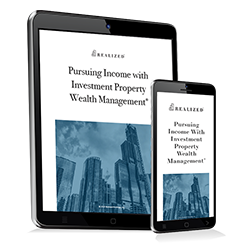
Retirement generally means stepping away from a day-to-day job you might have had for years, or even decades. It also means stepping away from a steady wage and/or salary.
Perhaps you’ve managed to set aside funds into a pension or retirement plan to help support you once you’ve stopped working. Just as important is understanding what expenses are higher during retirement before you reach, and pass, your last day on the job.
The Four Categories
If you google “higher expenses during retirement,” you’ll come up with more than 76 million hits. Blackrock does a good job of breaking these pending expenses into the following four categories:
- Essential Expenses
Essential expenses are mostly monthly costs, and can include housing, transportation, groceries, and medical/health care. These are the “always” costs of retirement.
On the one hand, your housing costs could be lower when you retire. At this point, the mortgage might be paid off (eliminating one expense). At the same time, downsizing into a smaller, less expensive living space can also occur. But housing costs are increasing, as are the costs to maintain a home.
Health insurance costs could increase. You could be swapping your employer-sponsored health care coverage for Medicare. While the basic Medicare premiums don’t cost a thing, there are deductibles and Medicare Part B, which is the medical insurance “add-on.” The average monthly premium for Part B is $170.10.
Also on the rise? Healthcare expenses. Estimated annual health care costs (excluding long-term care) for a 65-year-old couple retiring in 2024 is $16,155 – which could be an issue for those on a fixed income.
- Discretionary Expenses
Discretionary expenses—also known as variable expenses—include entertainment, hobbies, dining out, travel, gym memberships, and charitable donations. Retirees have more time on their hands and will likely put more money toward these “extracurricular” activities. Unlike essential expenses, you have more control over these discretionary expenses and can cut back when needed.
- One-Time Expenses
You might find that car maintenance expenses and your clothing budget shrinks, as you no longer need to commute to work or buy professional clothes. Potentially canceling these out are one-time expenses, which can range from helping to put a grandchild through college, to planning a funeral for a spouse.
The average cost of a funeral can be between $7,000 and $12,000 – and this doesn’t include a cemetery burial, headstones, or services. Honoring a loved one’s passing can be expensive.
- Taxes
Just because your job goes away doesn’t mean taxes disappear. You still might have to factor in property taxes (if you own a home), as well as federal, state, and local income taxes.
There are also taxes on withdrawals from your IRA or 401(k). Unless yours is a Roth IRA (during which you were taxed at the time of the contribution), you’ll owe federal income tax at a regular rage on the distributions. What if you decide not to take those distributions? You are required to start taking withdrawals from your IRA or other defined contribution plan when you reach 72 years old. The exception is a Roth IRA, which doesn’t require withdrawals until after the death of the owner.
Expenses and the Golden Years
Retirement can pave the way for new experiences and different ways of living. The retirement years can also mean unanticipated higher expenses. As such, when considering what’s needed for retirement income, it’s a good idea to honestly assess the costs you could incur.



